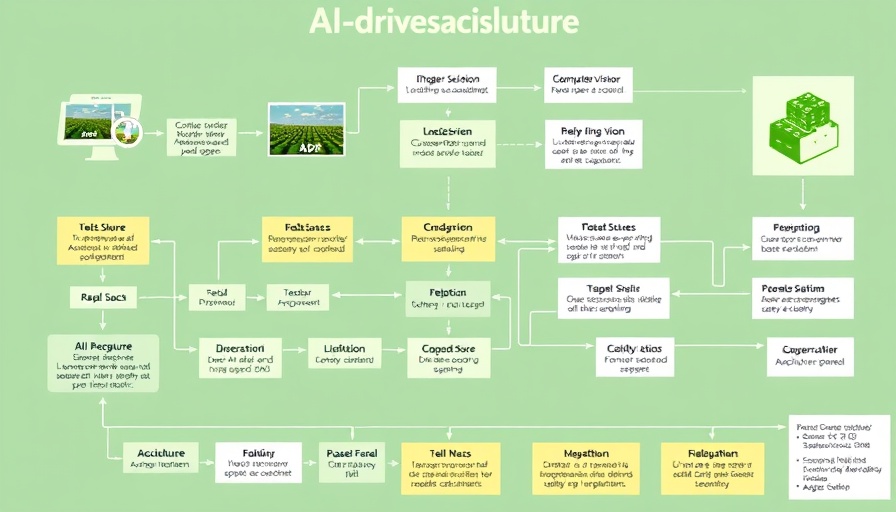
Revolutionizing Agriculture: The AI Transformation at John Deere
John Deere, a titan in agricultural machinery and technology, is leading a remarkable transformation in farming practices through advanced artificial intelligence (AI) initiatives. As global food demands rise, the company’s strategic focus on AI has positioned it as a pioneer in achieving enhanced productivity and sustainability within the agricultural sector.
AI's Role in Sustainable Farming
The integration of machine learning and computer vision into John Deere's operations promises major advancements in farm efficiency. The company reported an impressive annual revenue of $51.7 billion in 2024, highlighting the financial impact of their tech investments. Continuous innovations, such as the acquisition of Blue River Technology for $305 million, underscore this commitment to leveraging AI in agriculture.
Addressing Herbicide Inefficiencies
One significant application of AI at John Deere is its See & Spray technology, which represents a critical upgrade over traditional herbicide application methods that often waste chemicals and contribute to environmental degradation. Previous systems employed a broad-spectrum approach, leading to over-application and customer dissatisfaction. In contrast, See & Spray utilizes AI-driven machine vision to precisely detect weeds and selectively apply herbicides. This smart system enables farmers to save costs and reduce herbicide usage by as much as 77%, paving the way for sustainable practices that minimize chemical runoff.
The Precision Agriculture Advantage
Farmers employing this technology report significant savings and faster returns on investment. With the capability to analyze visuals at an astonishing rate of 2,100 square feet per second, See & Spray distinguishes weeds from crops with remarkable accuracy. This not only enhances economic efficiency but also aligns with user demands for environmentally friendly solutions.
A Future Driven by Data
As the agricultural robots market continues to thrive—projected to grow from $15.8 billion to $51.2 billion by 2030—John Deere's innovative AI solutions are shaping the future of farming. Early adopters of See & Spray see an average ROI faster than expected, showcasing the potential of these technologies to not only improve productivity but also to mitigate the impacts of labor shortages and rising operational costs in the agricultural sector.
The Bigger Picture: Sustainable Farming Goals
By addressing key issues like herbicide costs and environmental waste, John Deere is at the forefront of a broader shift toward sustainable practices within agriculture. As stakeholders increasingly prioritize eco-friendly solutions, technologies like See & Spray demonstrate the crucial role of AI in meeting these demands, ultimately helping farmers to balance productivity with environmental responsibility.
Conclusion: Embracing AI in Agriculture
John Deere's journey into AI underscores a crucial lesson for business owners in every sector: embracing technological advancements can lead to innovation that not only drives profits but also supports sustainable and responsible management practices. Businesses looking to stay ahead must consider how AI can transform their operations and contribute positively to their industries.
 Add Row
Add Row  Add
Add 





Write A Comment